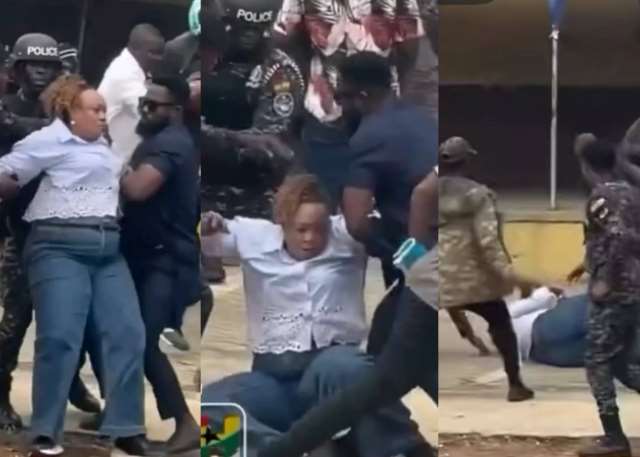The Ghana Police Service has begun investigating violent incidents from the 11 July re-run of the Ablekuma North parliamentary by-election. Videos showing assaults on polling staff and a journalist sparked public outrage, triggering police pledges of swift action.
Yet, concerns now swirl about whether those pledging justice will act impartially. Many perpetrators are known faces within political circles. The public’s question is clear: will the police truly uphold professionalism, or will familiar names escape accountability?
Police say investigations are underway, with statements and medical report forms already issued to victims. And notably, one police officer caught assaulting a journalist was interdicted and faces criminal charges. That is commendable, but observers argue it’s not enough.
Critics note that the Vigilantism and Related Offences Act, 2019 (Act 999) prohibits politically motivated violence. It states plainly:
“A person shall not directly or indirectly … form, organize … a political party vigilante group.”
Carrying stiff penalties—including up to 25 years imprisonment—this law remains unenforced when it matters most. In Ablekuma North, almost every video clip shows groups acting as pseudo-vigilantes. Yet arrests have yet to follow.
The National Peace Council and civil society have consistently called on security agencies to “enforce the Vigilantism … Act 2019 … without any fear or favour”.
Meanwhile, political observers highlight how the NDC, once vociferous in condemning electoral violence, now seem strangely silent. Back in 2019 after the Ayawaso West Wuogon by-election—when masked operatives shot voters—the NDC staged protests and demanded accountability.
Today, however, with violence recurring, NDC leaders have not echoed that same moral outcry.
What Ghanaians Are Saying
Senior political analyst Nana Karikari wrote:
“The Ablekuma North parliamentary election rerun, marred by shocking violence … marks a turning point.”
A local community activist added in an online post:
“Sam George lacks emotional intelligence … before he tweets.”
The Challenge for the Police
The Ghana Police are at a crossroads. They must not only investigate, but demonstrate transparency and equity. This means prosecuting all offenders—regardless of party affiliation. The law demands that no known face remains overlooked.
They must enforce Act 999 to the letter. They must bring charges, secure convictions, and disqualify guilty individuals from holding political office—as the law requires.
Above all, they must send a message: politically motivated violence will no longer be tolerated in Ghana.
Why It Matters
Ghana prides itself on democratic stability. But every instance of unchecked violence chips away at that reputation. Trust in our electoral process hinges on the integrity of law enforcement.
If the police act swiftly and fairly, they will restore public confidence. If they fail, they risk reinforcing the fatal cynicism that political rules are only for ordinary citizens—never for the powerful or well-connected.
The world is watching. History will judge this moment.




